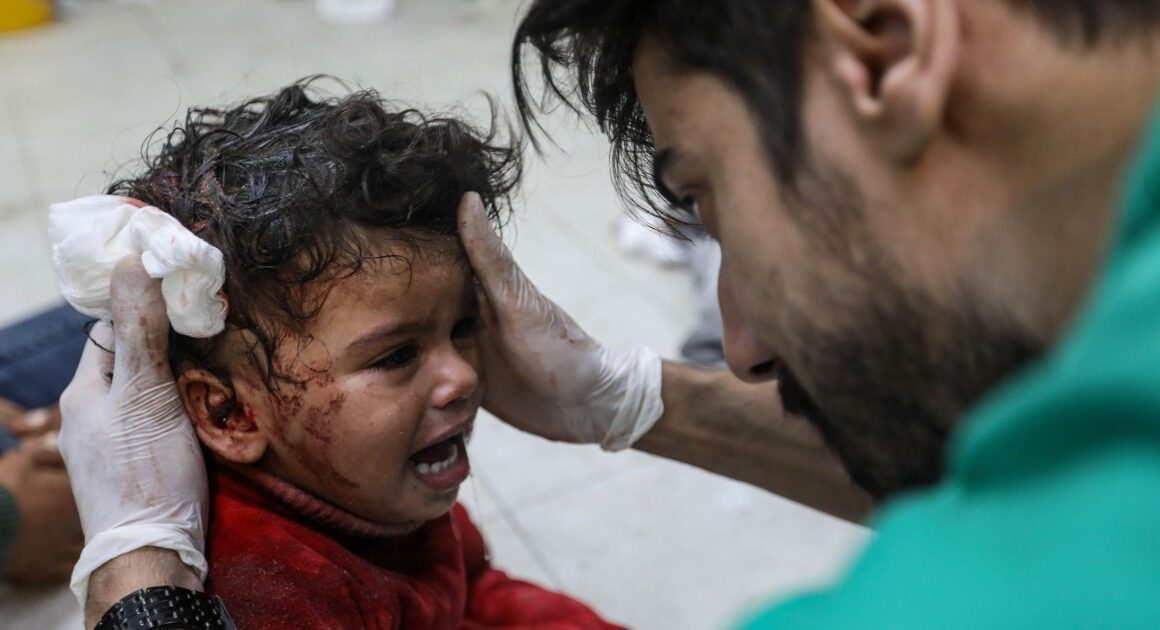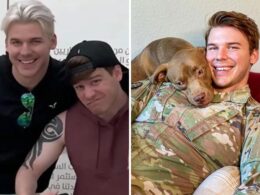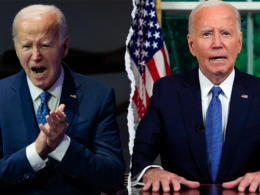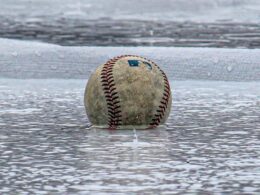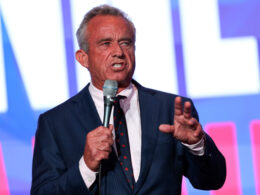Among all of the atrocities of war, it’s the broken and bloodied children that devastate doctors working in Gaza.
“The first child I saw was a 3-year-old girl with her thigh peeled off her bone,” said Dr. Javid Abdelmoneim, a physician with Médecins Sans Frontières, or Doctors Without Borders, who returned Wednesday after two months of duty at Nasser Hospital in Gaza. “The last patient I saw that day was a girl who we had to leave for dead. She was unaccompanied. She had no family. She was breathing. She had a head injury, but the system was overwhelmed. We didn’t have enough blood, and there were no beds.”
Abdelmoneim fought back tears at a news briefing Thursday on Zoom, along with other doctors from nongovernmental organizations and human rights workers who described their experiences in Gaza over the last several months.
“We stood between bodies on the floor of children in different stages of death and dying and realized there was nothing we could do,” said Dr. Ahmad Yousaf, an Arkansas pediatrician who volunteered at al-Aqsa Martyrs Hospital in central Gaza as part of a medical mission organized by the international humanitarian NGO MedGlobal. “There was only so much gauze and so many hands to place on bleeding limbs.”
The doctors went to the Gaza Strip after Israel cut supplies of water, electricity and fuel to the area after Hamas’ Oct. 7 attack on Israel.
“The system is on its knees,” Abdelmoneim said. “Nowhere is safe.”
The trauma is compounded because Gazan health care workers’ homes and families have been directly affected by the ongoing conflict. Their homes have been destroyed, Yousaf said. Members of their families have been killed.
And they’re not immune to the widespread illnesses due to poor sanitation and lack of water.
“The aid workers are also becoming sick, crippling the aid response,” said Alexandra Saieh, head of humanitarian advocacy and policy at Save the Children International.
Saieh reported that more than 14,000 Palestinian children have been killed since October and that more than 20,000 are missing.
“This includes children who have been separated from their families and are unaccompanied, children who are trapped under the rubble and presumed dead, children who have been buried in unmarked mass graves,” she said.
What’s more, “a staggering number of children in Gaza are losing their limbs and facing life-altering injuries due to the use of explosive weapons,” Saieh said. “They do not have access to prosthetics or physiotherapy, and they can’t flee when Israeli forces issue recurrent, so-called evacuation orders.”
The World Health Organization recently warned that polio might be spreading undetected in Gaza after wastewater samples tested positive for the virus.
That threat, however, was just one of the many health problems facing doctors on Thursday’s call.
“The top diagnoses in our primary health centers are all water- and sanitation-related: diarrhea, scabies infestation, skin infections and eye infections,” Abdelmoneim said. “We have children dying from hepatitis A,” which can be spread through contaminated water.
It’s the children who will survive who haunt doctors.
Yousaf talked about kids as young as 3 years old “wide-eyed, clinging to their parents, or what’s left of them,” as they watched them die from traumatic injuries.
“What will that do to that child for the rest of their lives?” he asked. “Who will they be 20 years from now, when they’ve lost all ability to cope because of the prolonged, persistent trauma and assault on their pediatric brains? That’s something that will live with me.”
,




